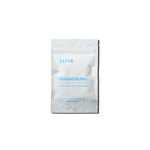Improve Sleep and Diet to Reduce Stress Naturally
In today’s fast-paced world, stress has become a familiar companion for many. Whether it’s a stressful routine or poor sleep, the effects on our health can be profound. However, there are natural ways to mitigate these effects, notably through improving our sleep and dietary habits. By the end of this blog, you’ll have actionable insights into how simple lifestyle tweaks can lead to significant stress reduction.
The Link Between Stress and Sleep
Stress and sleep share a bidirectional relationship: poor sleep can lead to increased stress, and stress can make it harder to get a good night’s sleep. According to the Sleep Foundation, stress activates the body’s sympathetic nervous system, leading to an increase in alertness and therefore, difficulty sleeping. This lack of sleep, in turn, raises cortisol levels in the body, making day-to-day activities more stressful and challenging.
Dietary Habits for Stress Reduction
Diet plays a crucial role in how effectively the body manages stress. Certain foods can enhance the body’s resilience against stress, while others might exacerbate stress levels. For instance, complex carbohydrates found in whole grains help the brain produce serotonin, a chemical that has a calming effect. On the other hand, excessive caffeine or sugar can lead to energy crashes that increase stress.
Key Nutrients and Foods
- Magnesium: Found in leafy greens, nuts, and seeds, magnesium has been shown to alleviate symptoms of stress and anxiety.
- Omega-3 Fatty Acids: These are known to reduce the stress hormone levels in the body. Good sources include fish such as salmon and sardines, and flaxseeds.
-
Probiotics: These beneficial bacteria, found in yoghurt and other fermented foods, can improve gut health, which is closely linked to mood and stress levels.
Regular meals and balanced nutrient intake are crucial as they stabilise blood sugar levels, reducing stress triggers. Researchers at Harvard Health have also indicated the importance of regular, nutritious meals in combating the physiological effects of stress.
Practical Tips for Better Sleep
Improving sleep quality is pivotal in managing stress. Here are some effective ways to enhance your sleep:
-
Establish a Sleep Routine
Consistency is key. Going to bed and waking up at the same time every day sets your body’s internal clock to expect sleep at a certain time night after night.
-
Create a Restful Environment
Your bedroom should be a sanctuary reserved for sleep and relaxation. Keep it cool, quiet, and dark. Investing in a good quality mattress and pillows can also significantly improve your sleep quality.
-
Avoid Stimulants
Avoid caffeine and digital screens at least an hour before bed. These can interfere with your ability to fall asleep by boosting energy levels and enhancing mental alertness.
Combining Diet and Sleep Strategies for Optimal Stress Management
Integrating both improved diet and sleep into your lifestyle can enhance your ability to manage stress. Start with small changes. For example, incorporate a serving of magnesium-rich foods into your diet, or establish a nightly routine that prepares your body and mind for sleep.
Holistic Lifestyle Changes
Consider mindfulness or meditation practices as they can improve both sleep and stress levels. Regular physical activity is also beneficial, though it should be timed appropriately during the day to not interfere with sleep.
Monitoring Progress and Adjustments
Keep a journal to track your sleep, diet, and stress levels. This can help you identify patterns and make necessary adjustments. Remember, what works for one person might not work for another. It’s important to listen to your body and consult with healthcare providers when needed.
Conclusion
Managing stress through better sleep and diet is not just about adding or removing certain things from your life; it’s about creating harmony and balance. By making gradual and consistent changes to your sleep patterns and diet, you can enhance your body’s natural stress defenses, leading to a healthier, more vibrant life. Remember, the journey to better health is a marathon, not a sprint. Be patient and persistent, and the results will follow.










